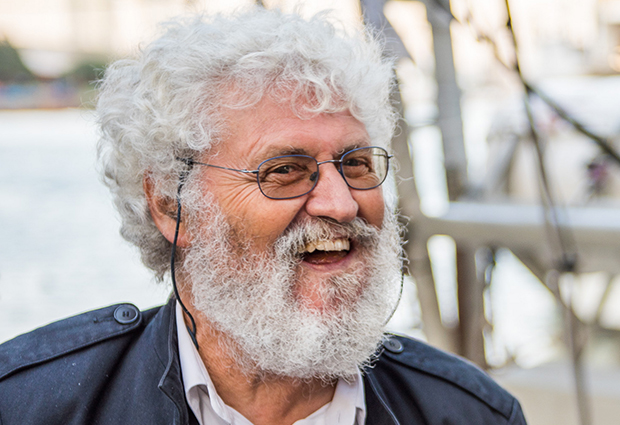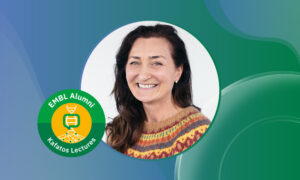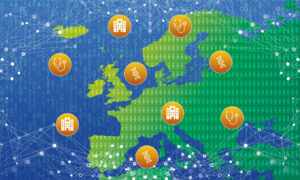
Karsenti wins CNRS gold
From the fundamental mechanisms of our cells to the biodiversity populating the depths of the oceans, across his career Eric Karsenti, founder of EMBL’s Cell Biology and Biophysics Unit and currently a visiting scientist, has used an interdisciplinary approach to bring innovative answers to diverse and complex questions. Karsenti’s exceptional contribution to science was recently rewarded with the French CNRS gold medal, the highest reward delivered by the French national science research centre.

“I feel very proud and grateful to have been selected by my peers to receive this award,” says Karsenti. “However, I share it with all the excellent scientists from all fields who contributed to the projects I led: without their work and expertise nothing would have been possible.”
I share this award with all the excellent scientists from all fields who contributed to the projects I led.
After his PhD at the Institut Pasteur in Paris, France, and a postdoc at the University of California, San Francisco, USA, Karsenti became a group leader at EMBL Heidelberg in 1984. He continued the research he had started in the USA to understand how the chromosomes in a dividing cell induces the assembly of the mitotic spindle that distributes them between the two daughter-cells. His work led to the discovery of how an enzyme, the kinase cdc2, triggers cell division, as well as shedding light on how unexpected chromosome-cytoskeleton interactions are required to distribute the genetic material evenly. During mitosis, the microtubules, one of the key constituents of the cytoskeleton, polymerise around the dividing chromosomes and pull them towards the two ends of the dividing cell. Although they take place in living cells these events obey physical rules that soon made it necessary to bring physicists into the team to complement the biological approach.
In 1996 Karsenti went on to found, and lead, EMBL’s Cell Biology and Biophysics Unit. At that time it was one of the rare centers to bring together molecular biologists, physicists, synthetic biologists, mathematicians, and experts in imaging techniques to work on the same questions in cell biology. This innovative approach proved very successful: the Unit continues to thrive, currently with 13 active groups working on various interdisciplinary problems.
But Karsenti is not only a scientist, he is also a keen sailor and a man who loves adventures. Famously, he combined all his interests into a single project, and in 2009 the schooner Tara left the shores of France to embark on a three-year-long research expedition to study plankton in all of the world’s oceans. By 2013 the Tara Oceans expedition had journeyed 140 000km with a rotating team of highly skilled and passionate scientists, sailors, journalists, artists, and logistics experts who collected approximately 35000 samples of plankton.
EMBL joins the CNRS in celebrating the exceptional career of Eric Karsenti and his outstanding contributions to biology
Bringing together expertise in genomics, quantitative imaging, biology, biogeochemistry, biogeography, oceanography, biophysics, genetics, ecology, bioinformatics, they published their first results in May 2015. Five articles appeared in the journal Science that mapped the biodiversity of different species (viruses, bacteria, and eukaryotes) and their interactions: these results should lay the foundation for future studies and serve as a reference for monitoring climate change in the future. Many more publications are expected as researchers further explore the huge datasets collected by the scientists.
“EMBL joins the CNRS in celebrating the exceptional career of Eric Karsenti and his outstanding contributions to biology,” explains Iain Mattaj, Director General of EMBL.


